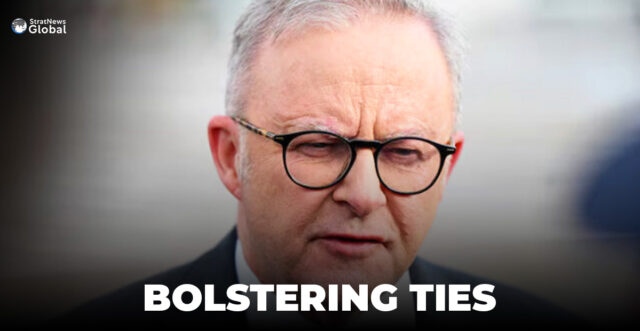Australian Prime Minister Anthony Albanese is scheduled to hold talks with Chinese President Xi Jinping and Premier Li Qiang in Beijing on Tuesday, where he mentioned that key issues like resources trade, energy transition, and regional security tensions would be high on the agenda.
Albanese is due to meet Xi ahead of an annual leaders dialogue with Li, and later attend a business roundtable at the Great Hall of the People.
Hoping For A ‘Constructive Dialogue’
Albanese said on Monday he looked forward to a “constructive dialogue” with the Chinese leaders.
Australia, which considers the United States its primary security ally, has adopted a balanced approach towards China under Prime Minister Albanese, following a policy of “cooperate where we can, disagree where we must” — aiming to manage economic ties with Beijing while safeguarding strategic interests aligned with Washington.
Frenemies
Australia has expressed concern at China’s military build-up and the jailing of an Australian writer, while Beijing has criticised Canberra’s increased screening of foreign investment in critical minerals and Albanese’s pledge to return a Chinese-leased port to Australian ownership.
Chinese state media outlet Xinhua said the relationship between the two countries, which have complementary economies, was steadily improving.
Business Roundtable
Australia’s exports to China, its largest trading partner, span agriculture and energy but are dominated by iron ore, and Albanese has traveled with executives from mining giants Rio Tinto, BHP, and Fortescue, who met with Chinese steel industry officials on Monday, as part of a six-day visit.
Bran Black, CEO of the Business Council of Australia, said Australia’s Bluescope Steel will also be at Tuesday’s business roundtable, along with China’s electric vehicle giant BYD, Chinese banking executives, Baosteel and COFCO.
“First and foremost we use fixtures such as this to send a signal that business-to-business engagement should be welcomed and encouraged,” Black told Reuters on Tuesday.
(With inputs from Reuters)





